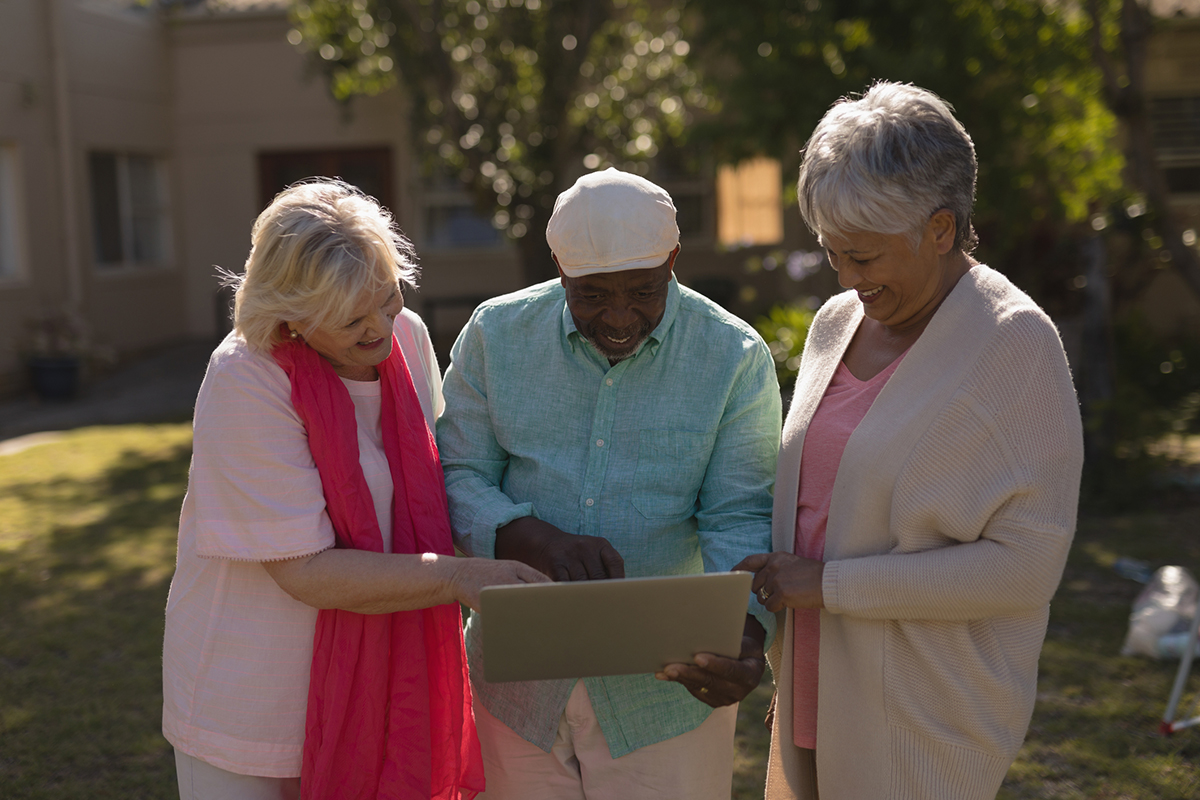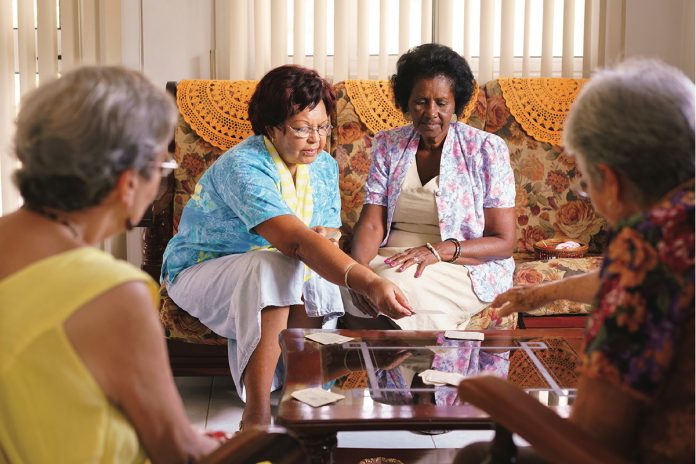The Tension Between Cultural Values and Getting the Help You Need
Latinos, on average, experience greater longevity than do non-Latino Whites and African Americans. This longer life expectancy is a mixed blessing, as it comes with an increased risk for dementia. As previously noted in April 2022 edition, Latinx with dementia exhibit a higher number of behavioural symptoms, notably depression and anxiety. These symptoms, in addition to others complicate dementia care and present major challenges for caregivers, especially family caregivers.
Latino caregivers and asking for help
Familismo/familism, simpatia, and respeto continue to be the traditional Latinx cultural values among ageing Latinx, a concept that involves broad networks of support including aunts, uncles, grandparents, godparents, and other close family members. Dementia is truly a family affair, emphasising affiliation, obligation and cooperation. Given the strong sense of obligation, loyalty, and responsibility that familism engenders, Latinxs are more likely to be cared for by family members when faced with chronic and terminal conditions. Although frequently reluctant to go outside the family, caregivers need help and relief for.
In their chapter on “Latino Families Living with Dementia: Behavioral Issues and Placement Considerations,” Janette Rodriguez and Viviana Padilla-Martínez (Chapter 8 from Caring for Latinx with Dementia in a Globalized World, 2020, editors Hector Y. Adames, Yvette N.) discusses different dementia service models, internal, external and hybrid. In the Latino culture, given cultural values, several Latino caregivers are reluctant to ask for assistance or avail themselves of resources meaning that a hybrid model will likely work best. This model includes significant support and collaboration from both within the family and outside professionals/experts.
As one caregiver expressed, “Si tú estás más enfermo que ella, ¿cómo tú la vas a cuidar? [If you’re sicker than she is, how are you going to care for her?]”. She noted self-management approaches they might take to relieve stress including yoga, art, prayer, exercise, singing and dancing, spending time with loved ones, and getting caregiving help.

Underusing help available
In general Latino families underutilise formal dementia caregiving options. Barriers to accepting help outside the family include distrust of outsiders, acceptance of stress as a part of the familial caregiving role, and resistance to sharing familial problems with outsiders or admitting that care is too demanding. Many Latino families may find that expressing or acknowledging distress or difficulties is unacceptable, as caring for elders with grace is culturally expected. Some of these issues can be addressed by educating the family and caregivers so that they will accept some outside help.
Family members can provide specific help and be proactive. This help includes setting up a schedule to relieve the main caregiver so that she/he can socialise with friends for example or engage in other enjoyable activities. In addition, the extended family can help by completing several tasks that can alleviate the main caregiver such as grocery shopping, laundry, travel to doctor’s appointments and other specific needs. Visiting is wonderful; however, specific assistance can make the difference between feeling overburdened, ready to quit, not knowing how to go on and the ability to manage. This help can decrease the sense of being alone in the process, provide support and decrease negative experiences.
Experts can provide culturally appropriate resources for Latinx with dementia
“Experts” can be proactive and engage in preventative efforts, communication and problem solving with families so that they can begin to address issues such as grieving and the experience of caregiving. Some examples that may help with communication and with helping the family to accept outside help include the use of infographics, telenovelas, attending specifically culturally sensitive interventions (groups) and educational offerings.
The following are examples of some of the help that experts can offer:
The use of Infographics. To “get the picture”, using infographics, a means of communicating effectively with caregivers regarding their health and dementia. For example, to understand that their level of depression symptoms may need treatment. This technique can also be used to communicate about the symptoms of depression and anxiety exhibited by the person with dementia and potential ways of handling these symptoms.
Fotonovelas, culturally congruent stories conveyed through photographs and text, are used to increase awareness about BSDs, symptom management, and to teach Latinx caregivers how to understand and manage stress and depression. These are extremely helpful when health literacy may be an issue.
Circulo de Cuidado, is a culturally-sensitive, cognitive behavioural therapy (CBT) group intervention, supporting Latino families to deal with BSD and improve caregiver well-being. Groups are small, informal, and highly interactive, involving a great deal of chatting. Each group choses the type of preferred refreshments and suggests the use of a particular bodega. Each week the group leader arrives early and stays late to provide ample time and space for mutual exchange.
REACH-OUT is another program offered, led by social workers and nurses to provide support and assistance to Latino families. Spousal and older caregivers benefitted most from this program.
PACE (Program of All Inclusive Care for the Elderly) Programs are offered in several states in the United States. They are especially designed for those with fewer financial resources and provide comprehensive care including but not limited to medical, nursing, social work, nutrition, and social activities
The development of culturally tailored engagement efforts and educational resources to promote dementia health literacy, early detection, and caregiver training among individuals, families, and community stakeholders is essential.
Please note: This is a commercial profile.
© 2019. This work is licensed under CC-BY-NC-ND.











